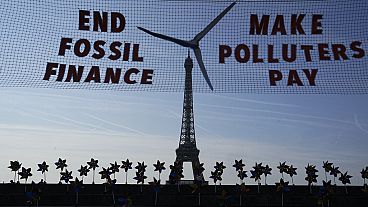BERLIN (Reuters) - Germany's powerful BDI industry association on Wednesday criticised a Franco-German proposal to consider a European carbon border tax to protect firms investing in green technology from emission-intensive competition abroad.
The industry group has close links to German Chancellor Angela Merkel's centre-right conservatives and has the power to torpedo efforts to introduce a European-wide carbon adjustment tax trough aggressive lobbying in Brussels and Berlin.
France and Germany last week issued a joint statement in which both countries said that the introduction of such a levy should be an option in European efforts to fight climate change.
It was the first time Germany has shown a willingness to consider a carbon border tax, pushed for by French President Emmanuel Macron, despite concerns that such a move could increase trade tensions with the United States.
Speaking to reporters in Berlin on Wednesday, BDI President Dieter Kempf said implementing a carbon adjustment tax for imports from countries with less rigorous climate protection schemes was technically difficult, especially for sectors with a high degree of cross-border division of labour.
Kempf also warned that such a levy could trigger retaliatory trade measures from other countries which could hit Germany's export-dependent, open economy particularly hard.
"I think there is a high risk that we end up with a renationalisation of trade if we now try to solve the carbon leakage problem like this," Kempf said.
European companies are concerned they could face unfair competition from countries with less rigid climate protection after U.S. President Donald Trump pulled his country out of the Paris climate deal that aims to reduce carbon emissions.
A border adjustment tax could shield European companies that support carbon-reduction efforts with investments in green technology from "dirty" competition from outside the bloc.
Germany's steel industry has welcomed the Franco-German proposal, saying that it could help create a level international playing field.
Germany's DIHK Chambers of Industry and Commerce struck a more cautious tone, warning that any carbon border tax had to be compatible with the rules of the World Trade Organization (WTO).
"Otherwise, the already fragile world trade system could face the risk of severe disruptions that would be difficult to control," DIHK trade expert Volker Treier told Reuters.
"For the highly internationalized German economy, it will be of great importance that new regulations on climate protection do not hinder global trade or that other states even use environmental policy as an excuse to justify their own protectionist measures."
(Reporting by Michael Nienaber, editing by Deepa Babington)



